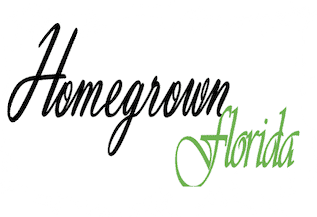Last Updated on January 31, 2024 by Homegrown Florida
If you’re tired of dealing with disappointing yields in your garden, you’re not alone. I’ve been there, too. We’ll unravel the secrets to boosting your garden’s productivity by selecting the perfect varieties tailored to your climate. Learn how to navigate microclimates, tap into valuable resources, and make informed choices that will transform your gardening experience.
The Importance of Choosing the Right Varieties:
Uncover the critical role that plant varieties play in determining the success of your garden. By understanding your climate, including microclimates, you can make informed choices that significantly impact yield and overall garden health. Connect with local gardeners or reach out to your local extension office to find the best options for your immediate area.
Navigating Microclimates:
Discover what microclimates are and how they influence your garden. Microclimates are just mini climates affecting your specific garden. They can be different than your local climate slightly due to elevation, nearby structures and surrounding trees create a unique microclimate. Learn how to identify and work with these specific conditions to optimize plant growth. Additionally, the University of Florida’s comprehensive website ais an excellent source for gardening information and seed varieties.

Selecting Climate-Adapted Varieties:
I provide a list of my most favorite varieties that thrive in Florida’s hot and humid conditions in my free ebook so make sure to get a copy to use in your own garden. From seminal pumpkins to Everglade Tomatoes and Georgia candy roasted squash, these varieties have proven successful in my garden. Learn the importance of considering the origin of a variety for better adaptation.
Disease Resistance:
Understand the role of disease resistance in plant varieties. Some vegetables, like seminal pumpkins, combat powdery mildew through their growth habits while Floradade tomatoes have a high toerance to blight. Explore the benefits of selective breeding in your own garden, emphasizing the importance of saving seeds from resilient plants.
Hybrids:
Delve into the world of hybrids and their role in disease resistance. Hybrids usually carry great traits like disease resistance, high productivity, faster maturity, and pest deterrents. The downside of using hybrids is that the offspring of the plant are not stable so you probably will not get the same type of plant.

Soil Type Considerations:
Address the challenges of Florida’s sandy soil and the presence of root knot nematodes. Improving soil quality by incorporating organic materials like compost and organic mulches like grass, leaves, and woodchips enrich the soil considerably. By adding more organic materials to your soil, this will reduce the root knot nematodes that naturally occur in our soil since they prefer sandy soil and not enriched soil.
pH Levels and Fruit Crops:
Explore the critical role of pH levels, especially concerning fruit crops like blueberries. Florida typicalls has a good ph for growing vegetables but can be more difficult in achieving a more acidic environment needed for certain kinds of fruits. You can adjust soil acidity using natural options like pine shavings, pine needles, and coffee grounds. Composting can contribute to maintaining an optimal pH for your garden naturally.
By carefully selecting varieties adapted to your climate, considering disease resistance, and addressing soil challenges, you can transform your garden into a thriving oasis of abundance. Don’t shy away from experimenting with new varieties, armed with research and a strategic plan. Your garden has the potential for a lush and fruitful harvest. Until next time, happy gardening!

